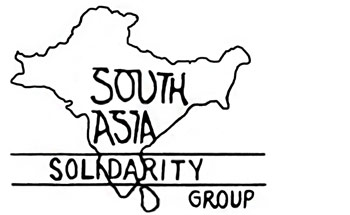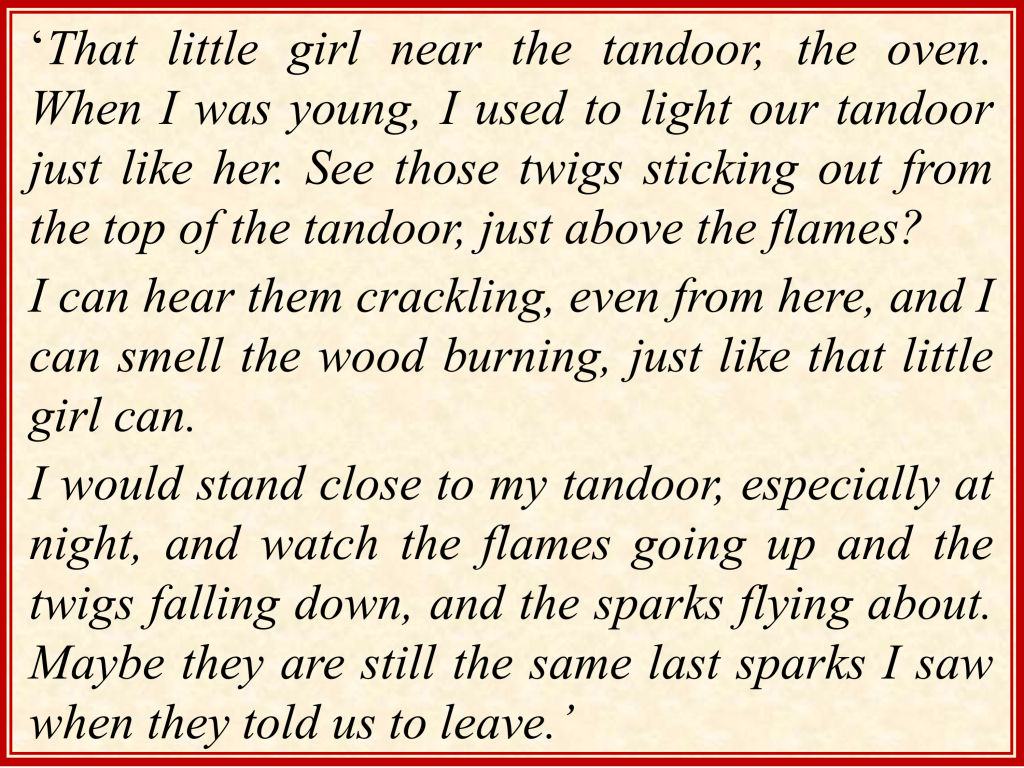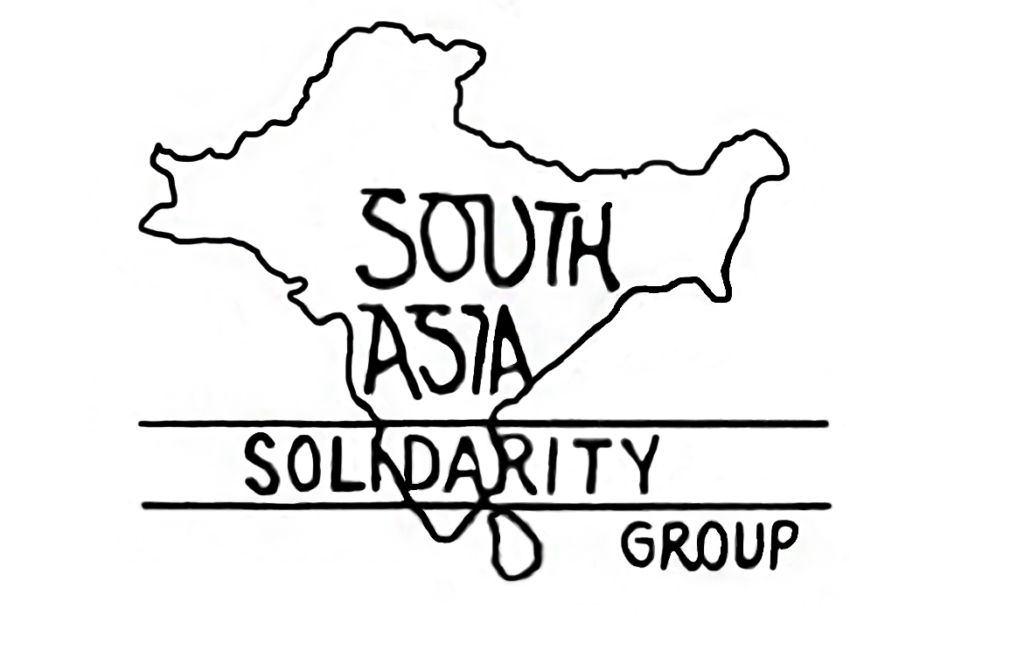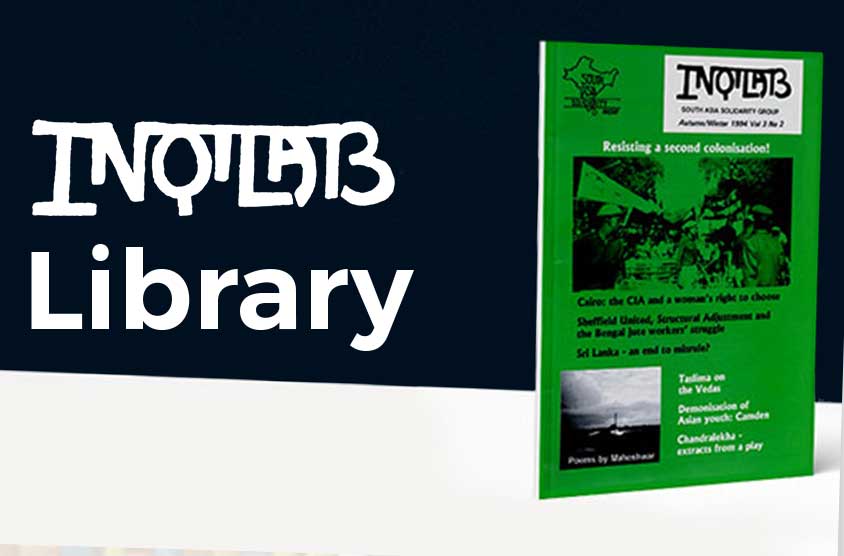- August 14, 2017
- Posted by: admin
- Category: News
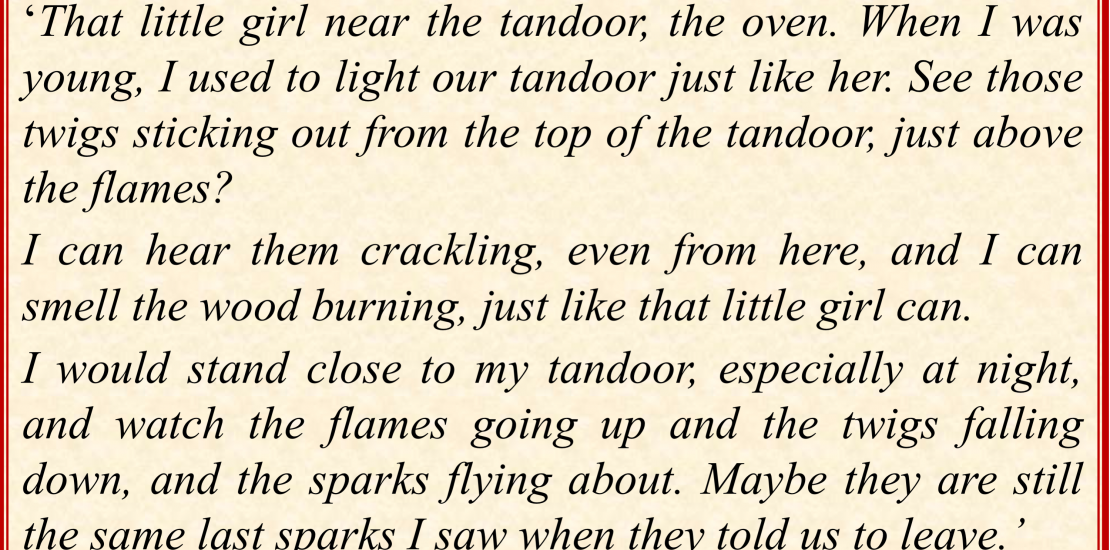
The House
A non-Muslim woman goes to Pakistan in search of the house from which she was forced to leave during the 1947 partition of South Asia
Short story by Tariq Mehmood
I was waiting for a fare close to the Marriot Hotel in Islamabad, watching a couple of bored policemen sitting under the shade of a tree, twiddling about with the barrels of their guns, when a bellboy from the hotel, followed by a tall thin woman, came towards me. The woman stopped, looked around at something and then followed the boy, who was already by my car.
‘Your lucky day, sir,’ the boy said to me.
I handed him a fifty rupee note. He brushed it away, saying, ‘It’s a big booking. Hundred.’
‘She’s a Pakistani madam,’ I said, pushing the note back towards him.
‘Foreigner,’ he said quickly, snatching the note whilst insisting with the index finger of his other hand for me to give him more money. I swore at him under my breath and handed him another fifty rupee note. He turned to the woman and opened the back door.
‘Yes, madam,’ I said to her in Urdu, ‘where would you like to go?’
She took a deep breath and replied, in Pothohari, ‘There is so much I would like to see, but can’t.’
I touched the key, my lucky charm, which dangled off the rear view mirror, and looked at her face in the mirror. She had long grey hair with streaks of silver, which fell down over her shoulders, and the way she held her head was just like the madams of Islamabad. By the way she talked and looked, she could have been someone from my village, but the black kamize, her top, with its embroidery of gold running down her front and the edges of the arms, meant she was not short of money.
I cursed the bellboy inside my head, You son of a donkey! I’ve waited for over two hours for a fare, and you dump me with this one.
‘Where can I take you?’ I asked in Urdu.
‘Do you not speak Pothohari?’ she asked, looking for something in her handbag.
‘Yes. Yes, madamjee,’ I said in Urdu with a taxi driver laugh. ‘It just doesn’t feel right talking in that language with a madam, especially someone from round here.’
‘I’m Indian,’ she said. ‘Talk to me in Pothohari.’
Thank you Allah, I thought inside my head.
‘As you wish, madam,’ I said in Pothohari. ‘I can take you anywhere. And get you whatever it is you desire,’ I added quickly.
She flicked her eyebrows disapprovingly and repeated, ‘There is so much I would like to see, but can’t.’
Oh yes, I thought, I know what your type wants.
I was just getting ready for the long game which would eventually mean me getting her what someone like her was really after but was finding it difficult to say, when she took a cigarette from her bag and lit it.
‘Do you mind if I smoke in your car?’ she asked, blowing smoke out of the window.
‘This car is at your service, madam,’ I said, thinking over what sort of a boy she was likely to be after.
‘Do you smoke?’ she asked, offering me a cigarette.
‘Which taxi driver doesn’t?’ I looked at her pack. It was one of the expensive foreign ones.
‘Keep the pack,’ she said. ‘I have more.’
I took it from her, and as I did this she said, ‘Drive.’
‘Where to, madam?’
‘Just drive.’
I put the cigarettes in the glove compartment, touched the dangling key and started the car. As I drove past the policemen, they looked at me and then chuckled to themselves, nodding towards the woman in the back of my car.
I turned left onto the main road and decided that she was the sort who would like to go to Taxila. Indians loved that, and they were good tippers. And if I was lucky, she might want to go to the ancient ruins of Katas. Then, I thought, maybe she is a Sikh. She would no doubt want to see Panja Sahib in Hasan Abdal.
I had only gone a short distance when she asked, ‘Why did you touch that key?’
‘Just one of those things we drivers do, madam.’
‘Just one of those things we drivers do,’ she mimicked, and then said, ‘I was born in Gujarkhan and have dreamt of one day visiting the house of my birth.’
I detected great pain in her voice.
A traffic policeman, who was standing in the middle of the road directing traffic, flagged me to stop. I tried to sneak past him, but he blew on his whistle a few times. I stopped and snatched a look at the woman. She didn’t look like the madams of Islamabad anymore, but almost like a mother who was searching for a lost child.
‘Majee,’ I said, thinking of my own dead mother, ‘You can go to Gujarkhan right now. It’s not far. I can take you.’
She smiled a sad smile and said, ‘I’m Indian, not allowed. And besides, everyone in India warned me not to go to Pakistan; it’s not safe, especially for Sikhs.’
‘This is Pakistan, no one is safe and Allah decides,’ I said, hoping she would want to go to Gujarkhan.
I prayed inside my head, ya rabbah, oh god, make this my lucky day. I’ve never had one of these returning Sikhs. Especially someone as rich as this one. Oh Lord, let this day be my Eid!
She went silent for a while and then her eyes lit up. ‘I have dreamt a thousand dreams to see where I was born.’
As I turned onto the Islamabad Highway, going south towards Gujarkhan, she asked, ‘Are you married? Do you have children?’
I glanced at her in the mirror, trying to work out what she would most likely like to hear. She looked the motherly type. She could have grandchildren, and then she might feel sorry for me if she thought I should be married but had not managed to save enough money.
‘Well, is it that a difficult question to answer?’
‘No, madam…’
She turned her head towards me. ‘Either call me majee or auntiejee, but not madam.’ Before I could answer, she added, ‘Majee.’
‘Jee, Majee.’ I stroked the dashboard next to the steering wheel, pointed to the black ribbons I had tied to the side mirrors and said, ‘This is my wife and my mother.’
She laughed, and then sat silently with her hand up to her mouth. Every now and again, when she saw a child or an animal, she would let out a deep sigh.
When we crossed Mandra, just as we went past a village, she asked me to stop. She pointed her thin finger at a house where a woman was rolling dung in her hands and then putting it on the side of the wall of a house.
‘People here still dry dung and use it for fuel to cook with,’ I said.
‘That little girl near the tandoor, the oven. When I was young, I used to light our tandoor just like her. See those twigs sticking out from the top of the tandoor, just above the flames? I can hear them crackling, even from here, and I can smell the wood burning, just like that little girl can. I would stand close to my tandoor, especially at night, and watch the flames going up and the twigs falling down, and the sparks flying about. Maybe they are still the same last sparks I saw when they told us to leave.’
How could those be the same sparks, I thought, and said, ‘Maybe, Majee, maybe.’ And then I asked her, ‘Why did you come to Pakistan?’
‘I am a poet. I came to recite.’
A poet, I thought. At least she is not like all the ones I know. Broke!
She started humming to the tune of Saif-al-Maluk. She stopped, let out a strange little laugh and said, without taking her eyes off the little girl by the tandoor, ‘It was the middle of the day in that year, 1947. I had lit our tandoor and then went to hang the washing on the walls. Mother had made the flour into dough, and I went and sat next to her and helped her make paeras, small balls from the dough. Mine were always either too small or too big, but mother never once told me off. She would just pick them up, smile and make them up again into the right size. My father was out somewhere, doing whatever he did, always turning up just as the rotis came out of the tandoor.
A few other women, four neighbours, came with their dough. They always did. Ours was a big tandoor. Mother placed our flour, all neatly rolled into perfect balls, on a silver tray and put it on my head; then she went to greet the women. I followed her and we all went to the tandoor. She began chatting with the women about how bad the times were getting. All the Sikhs in Choha Khalsa were dead, they said. And Sukho was in flames. No one knew who was alive and who was dead. All the Sikhs from Domeli had left.
Ours was a big tandoor …’ she stopped, looked at me and asked, ‘Did I tell you that already?’
I nodded.
‘Mother had built our tandoor with her own hands. It was big enough for lots of rotis to cook in. She usually let the other women make theirs first but that day, for some reason, she started on ours. She had just put four or five rotis into the tandoor when our door smashed open and soldiers with guns burst in. There were so many of them. The women screamed. I ran behind mother.
“You are leaving for India, right now,” they said.
Mother held my hand tightly. Her hand was hot and she was trembling.
Before anyone could say anything, the soldiers pushed us out of our house. Mother kept looking back at the tandoor, saying, “My roti will burn. My roti will burn.” But the soldiers just pushed us out of the house. Outside, there were more soldiers and so many terrified people. I called out for father, but how could he hear me amongst all those others who were calling out names?
We walked to the railway station. Mother never let go of my hand. I kept calling out for father all the way. Even as they made us get onto a train, I kept calling him. I had been on a train before, but this was not like any other. It was so full of people; some bleeding, others crying. I remember the eyes! The eyes – they were all bloodshot. And as the train pulled away, I heard a raging river of screams, screams I have never stopped hearing.
Mother never did talk much after that and when she did, she would say, “My roti will burn.’”
‘And what happened to your father?’ I asked.
‘I never did see him again.’
She didn’t say anything else all the way to Gujarkhan. When we got there, I parked my car behind the courts. She remembered the banyan tree, and she led the way as if she had never left. We walked around some narrow streets for a while.
As we did this, she would suddenly stop and say, ‘My house was here,’ and then shake her head, walk this way and that, and then stop again and say the same thing.
After a little while of doing this, she said, ‘It’s been too long.’
We headed back to my car. She walked much slower this time, lost deep in thought.
Just as we got into the bazaar, she said, ‘When I was young, there was a Christian called Khaled who used to sell little sweets on a raeree, a little wooden cart, which had a broken wheel.’
‘Maybe someone remembers him,’ I said.
She shook her head, ‘After all this time?’
I looked around till I saw an old shopkeeper. He was a big fat man who was looking at us whilst picking up fistfuls of daal, lentils, from a sack close to him and letting it fall through his fingers. I went up to him and asked, ‘Uncle, do remember a Christian who sold sweets around here before the partition?’
He looked at me for a while, then looked the woman up and down, and said, ‘The Christian is still here, still selling things on a raeree.’ He then told his son, a small round spitting image of himself, ‘Take them to Khaled Masih.’
We followed the boy through the bazaar up towards the GT road. After a short while, he stopped and pointed, ‘That’s Khalid Masih,’ and disappeared into the bazaar
As soon as she saw Khalid Masih, she cried, ‘Ya rabbah, oh god.’
Khalid Masih was a small dark man with a deeply wrinkled face. On his raeree, he had combs, socks, locks, mirrors and other small things.
She walked up to him ever so slowly. When she got close, she asked, ‘Are you Khalid Masih?’
He looked up at her and nodded.
‘Do you remember Karamjit Singh, son of Harjit Singh Kataria?’
Khalid Masih’s small eyes became even smaller. A sad smile flashed across his toothless mouth. ‘Kamli Kaur. You? Here?’
She hugged him and cried, ‘Babajee, you are still alive and still have your raeree!’
‘I died a long time ago, daughter,’ he replied.
Pulling away from him, she examined the raeree. ‘At least this one doesn’t have a broken wheel.’
He shook his head.
‘Do you remember my house?’
He nodded, wiping his eyes with the back of his hand.
‘We have searched everywhere for my house. Nothing looks like what I remember. Is my house still here?’
He nodded.
He left the raeree and we followed him. He had taken only a few steps when she asked, ‘What about your raeree?’
He turned around, pointed at the bazaar and smiled. Everyone was looking at us.
For an old man, he walked fast. We went through countless narrow streets until we came to a big house. ‘That is where you were born.’ He turned to leave.
‘Come with me,’ she said to the old man.
He stepped away from us. ‘I am still an untouchable. They will think I have contaminated you.’
She watched Khalid Masih until he went out of sight and then said to me, ‘This is not my house; maybe he is mistaken.’
‘We’ve come all this way. Let’s knock.’
‘Maybe, if they find out I am a Sikh…’
I interrupted her, ‘I’m with you and, as the Almighty is my witness, I will let nothing happen to you.’
She knocked on the door.
After a little while, a woman from inside the house asked, ‘Who?’
‘I’ve come from India and I am looking for the house where I was born,’ Kamli Kaur replied hesitantly.
There was a little pause and then the door opened. A young woman with a child on her hip stood in front of us. Kamli Kaur’s face turned white. She pointed to the veranda. It was an old wooden one, with carved curving arches. It was painted blue. With tears streaming down her cheeks, Kamli Kaur pointed inside, saying, ‘My name is Kamli Kaur. This is the house where I was born. And the veranda is still blue.’
Beckoning us in, the young woman said, ‘It is still your house, Majee, and the veranda has always been blue.’
As we stepped inside, the young woman handed her baby to Kamli Kaur and ran towards a tandoor, saying, ‘My roti is burning.’
Whilst the young woman retrieved her rotis, Kamli Kaur walked around the veranda, holding the child close to her. I stood where I was.
A few moments later, a frail old woman, much older then Kamli Kaur, came out. ‘Kamli!’ she cried.
I went outside, stood by the door and lit a cigarette. A short while later, a door close to me opened and a young man asked me to come inside. He pointed to a tray of food on a small table and said, ‘Eat, Ustad,’ and walked back into the house.
On the way back to Islamabad, Kamli Kaur sat in the front passenger seat. She looked much younger now.
‘What’s your name?’ she asked, lighting a cigarette.
‘Iqbal. Raja Iqbal,’ I replied. ‘We are refugees from India.’
‘Do you know where from?’ And then she added quickly, ‘How could you, you were not born then.’
‘No Majee, I wasn’t born then,’ I said, ‘But my mother, may the Almighty grant her a place in heaven, never stopped talking about her house. She said we had a great big peepal tree in the middle of our yard. We had the biggest well in the whole area, which never went dry, and from which everyone filled their pitchers. It was close to the Pir-I-Dastgir shrine.’
Kamli Kaur threw her cigarette out of the window, touched my lucky key and went silent for the rest of the journey.
It was late at night and there was not much traffic, so we made good time. I pulled up outside the Marriot and said, ‘Majee, I want no fare from you. I will never forget this journey.’
She held my hand tightly in her trembling hands for a few moments and then left the car. As I withdrew my hand, I noticed there was a key in it, and there was a small pile of one thousand rupee notes on the passenger seat. I picked up the money and drove off, the key in my hand. I stopped a short distance from the hotel, put the interior light on, and stared at the key.
A chill ran down my spine. I held it next to my lucky key.
They were exactly the same.
First published in Closure – Contemporary Black British Short Stories
